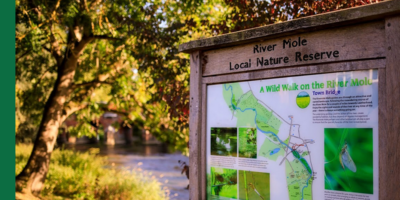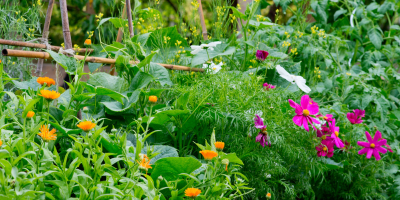Greener

Striving to become carbon neutral and maximising opportunities to ensure Mole Valley remains a highly attractive area.
We will
- Protect and enhance the natural and built environment, and ensure our areas of natural beauty and wildlife are well looked after
- Support recycling, waste reduction and measures to improve sustainability
- Promote the development of sustainable infrastructure, with a particular focus on active travel
- Build pride in Mole Valley by focusing on things such as: keeping streets clean and litter free, promoting responsible dog ownership, being tough on flytipping and supporting community volunteering
- Work towards becoming a carbon neutral organisation by 2030 while using our role as place leader to influence carbon reduction across Mole Valley
- Influence partner agencies to prevent and lessen the impact of environmental issues, focusing our efforts on water quality, air quality and flooding
Related projects

In early 2024 voluntary groups in Mole Valley had the opportunity to express interest in applying for funding for community gardens through the government’s UK Shared Prosperity Fund. The window for expressions of interest has now closed.
We have declared a Climate Emergency in 2019 and pledged to work towards making our operations carbon neutral. In October 2020 we produced our Climate Change Strategy based on the following strategic objectives:
- Reducing emissions from our estate and operations
- Reducing energy consumption and emissions by promoting energy efficiency measures, sustainable construction, renewable energy sources and behaviour change
- Reducing consumption of resources, increasing recycling and reducing waste
- Supporting council services, residents and businesses to adapt to the impacts of climate change
This year we’ll be continuing our work to fulfil our commitments.
Objectives and Performance
| 2024/25 Annual Plan Objective | Cabinet Portfolio |
| 7. Make best use of developer contributions (from Community Infrastructure Levy and Section 106 agreements) to fund Council Priorities, including affordable housing and infrastructure for communities | Councillor Rosemary Hobbs / Councillor Bridget Kendrick |
| 8. Deliver biodiversity net gain requirements in Mole Valley and deliver action plans to enhance the ecology in our open space as well as keeping residents and businesses advised on how they can continue to contribute to biodiversity | Councillor Claire Malcomson |
| 9. Continue to support the development of new community groups and volunteer workforces to support the Council’s priorities, including helping to facilitate the creation of community gardens | Councillor Claire Malcomson / Councillor Rosemary Hobbs |
| 10. Implement the actions in the Climate Change Strategy and update the Climate Change Action Plan to work towards becoming carbon neutral by 2030. This will include the delivery of the solar energy production at Leatherhead Leisure Centre and review of other opportunities for solar provision through the strategic asset management working group | Councillor Claire Malcomson |
| 11. Provide advice to businesses, residents and community/voluntary organisations to promote decarbonisation, including the provision of grants to village and community halls to reduce cost of living through decarbonisation | Councillor Claire Malcomson |
| 2024/25 Cabinet Performance Indicator | Target 2024/25 |
| 9. Percentage of waste sent for recycling, reuse and composting | 57% |
| 10. Household waste and recycling per person | 375 kg |
| 11. Number of missed bins per 100,000 collections | 80 |
| 12. Percentage of streets with acceptable levels of litter | 96% |
| 13. Percentage of streets with acceptable levels of detritus | 92% |
| 14. Reduction in the Council’s Carbon footprint | 2500 tonnes |
| 15. Percentage of trees due an inspection in Zone 1 areas that are inspected within the tree inspection policy timeframes | 100% |
| 16. Percentage of trees due an inspection in Zone 2 areas that are inspected within the tree inspection policy timeframes | 100% |
